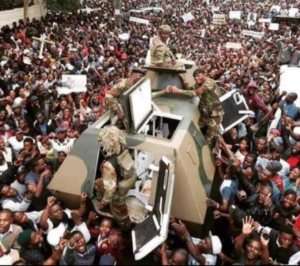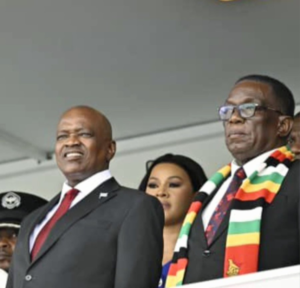HOLDING THE PAST ACCOUNTABLE: PURSUING GUKURAHUNDI PERPETRATORS UNDER INTERNATIONAL LAW

The scars of the Gukurahundi massacres in Zimbabwe, a dark chapter in the nation’s history, continue to haunt its people. While many of the perpetrators, including the principal architect, former President Robert Mugabe, have passed away, the specter of justice still looms. Now, a prominent local human rights lawyer, Dr. Siphosami Malunga, argues that the perpetrators of these heinous crimes can still be held individually criminally liable under International Criminal Law (ICL). In his groundbreaking 49-page article titled “Evaluating the Individual Criminal Responsibility of Gukurahundi Perpetrators under International Law,” published by the Comparative and International Law Journal of Southern Africa, Malunga sheds light on the legal pathways to bring justice to the victims of Gukurahundi.
THE LEGAL PURSUIT OF GUKURAHUNDI PERPETRATORS
The Gukurahundi massacres, which occurred between 1982 and 1987 in Matabeleland and Midlands, are recognized as international crimes. Dr. Malunga asserts that this recognition paves the way for pursuing the individual criminal responsibility of those involved under International Criminal Law. He firmly states, “In this regard, the amnesties granted under national law cannot shield perpetrators from prosecution.” This statement underscores the importance of international accountability for crimes of such magnitude.
AN IN-DEPTH ANALYSIS
Dr. Siphosami Malunga’s comprehensive article is not merely an academic exercise but a roadmap for pursuing justice. In his analysis, he evaluates various modes of liability under international criminal law, including system criminality, commission, co-perpetration, multiple perpetrators, complicity and common purpose, instigation, ordering, planning, aiding and abetting, joint criminal enterprise, and command and superior responsibility. By applying these elements to the perpetrators of the Gukurahundi atrocities, Malunga builds a compelling case for their individual criminal responsibility.
THE ROLE OF PRESIDENT EMMERSON MNANGAGWA
President Emmerson Mnangagwa, a figure widely regarded as one of the perpetrators of Gukurahundi, has attempted to distance himself from any involvement and criminal responsibility for the atrocities. Despite his recent initiatives to address this painful chapter in Zimbabwe’s history, they have faced significant criticism. Malunga’s research highlights the importance of holding even the highest-ranking officials accountable for their actions or inaction during this dark period.
THE QUEST FOR JUSTICE CONTINUES
As Zimbabwe grapples with its past, the pursuit of justice remains a critical endeavor. Dr. Siphosami Malunga’s groundbreaking research not only reaffirms the possibility of holding Gukurahundi perpetrators accountable but also provides a legal framework for doing so. It is a testament to the enduring commitment of human rights advocates to ensure that the victims of these atrocities receive the justice they deserve.
The quest to bring Gukurahundi perpetrators to justice under International Criminal Law is a challenging but essential endeavor. Dr. Siphosami Malunga’s scholarly work serves as a beacon of hope for those who seek accountability for the grave crimes committed during that dark period. While some key perpetrators may have escaped justice in their lifetimes, the pursuit of truth and reparation for the victims remains an indomitable force. Zimbabwe, like other nations that have faced similar challenges, must confront its past to build a brighter and more just future for its people.



